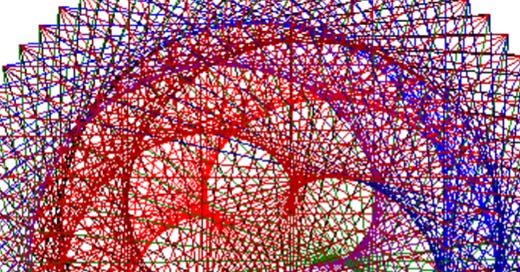Pain and Revelation II
Previously, in Pain and Revelation, we explored what pain can reveal about us and how we can leverage it to become better versions of ourselves.
Pain is not alone in its revelatory effect.
Here, we consider what power and pressure can also reveal about us.
I
Unlike pain, power and pressure tend to be regressive in nature. They tend to reveal aspects of our less-developed selves. They surface the deep, dark, and sometimes hidden dimensions of our character.
For instance, power amplifies our most unsavory urges. Namely, our low common denominator desire to dominate, command and control others. We experience this power effect most acutely in our professional lives. When a colleague who enjoys directing others a bit too much is promoted, we know what’s to come.
Power provides profound validation. Confirming what we deeply believe about ourselves and our relationship to others. Seemingly granting us a license to double down on who we are and what we believe. Unsurprisingly, when we lose power, we quickly shrivel in doubt and humble ourselves.
In a way, power functions a lot like hot air - it artificially inflates. Stop the hot hair, and watch the quick descent.
Rare is the wise person who can gain, hold, transfer, and relinquish power gently and gracefully.
II
Similar to power, pressure can expose our shortcomings.
Pressure can clearly highlight our life experience and stage of development. Under pressure, we can determine whether we have truly learned how to remain calm, be patient, not lose perspective, and make thoughtful decisions.
“Pressure tested” is a very real human quality. Someone with experience under intense pressure is bestowed with a new baseline threshold. They don’t easily unravel or become unnerved. Rather, they understand the arbitrary nature of deadlines, the importance of asking “who” can help instead of “what” should we do, and how time mysteriously solves seemingly unsurmountable challenges.
III
Power and pressure are easier to avoid than pain. We can decline power (ie. refuse the management role), and prepare for high-pressure situations (ie. start earlier).
Pain is different.
Pain is an inherent part of life - unavoidable, outside our control, and in some ways, eternal. Pain can remain with us forever.
Pain sharpens us. Actually, pain mutates us.
Pain can be so uncontrollable, it forces us to evolve and adapt. When life decides to unload on us, exposing the fiber of our being, we are compelled to evolve. If for no other reason, to try to avoid pain in the future.
Pain also teaches us in ways power and pressure cannot.
By forcing us to ask for help, pain teaches us humility. By leaving us no choice but to receive help, pain teaches us gratitude. And, if we are wise enough to allow pain to live vividly in our memory and become a part of our being, pain can reveal to us a better version of ourselves.
From this New York Times article by David Brooks. I invite you to read it.




